When most travelers think of Greece, they picture sun, sand, lovely islands and bright blue summer seas.
But Greece in winter is completely different. Greece has snow-covered mountains, cozy restaurants with fireplaces, and surprisingly warm coastal weather.
From December through March, Greece transforms into a diverse destination that offers everything from mountain skiing to peaceful island getaways, often without the crowds and at way lower prices than summer. Yet, island hopping is still possible, provided that you pay attention to your ferry connections.
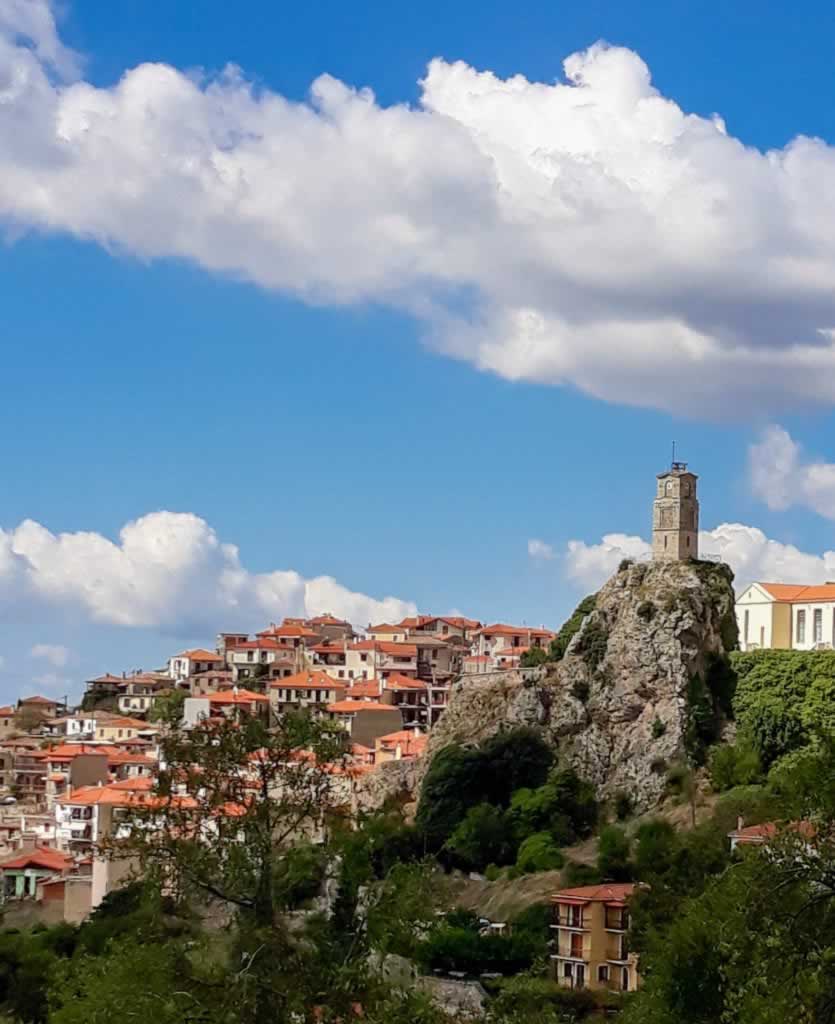
Lovely Arachova with its church tower and red roofs, one of the best winter destinations in Greece
Contents of Greece in Winter
Skiing and Winter Sports
Greece’s mountains create awesome skiing opportunities that surprise many visitors. The country has around 20 ski resorts, with the most popular ones in the north.
Mount Parnassos, just three hours from Athens, offers the easiest winter sports experience to reach. Its two ski centers have 23 runs covering over 36 kilometers, with peaks reaching 2,260 meters high. The resort works for all skill levels and provides amazing views of the Corinthian Gulf on clear days.
In northern Greece, 3-5 Pigadia on Mount Vermio, just 110km from Thessaloniki, and Kalavryta in the Peloponnese attract serious skiers with challenging slopes and reliable snow.
The season typically runs from December through April, depending on snowfall. Equipment rentals are easy to find, and day passes cost way less than Alpine resorts while offering equally dramatic mountain views.
Beyond downhill skiing, many resorts offer snowboarding, cross-country skiing, and snowshoeing. The après-ski scene features Greek hospitality with mountain lodges serving hot soups, grilled meats, and local wine.
Cultural Exploration and City Visiting
Winter transforms Greece’s ancient sites and lively cities into peaceful spaces where history feels more personal without summer’s huge crowds.
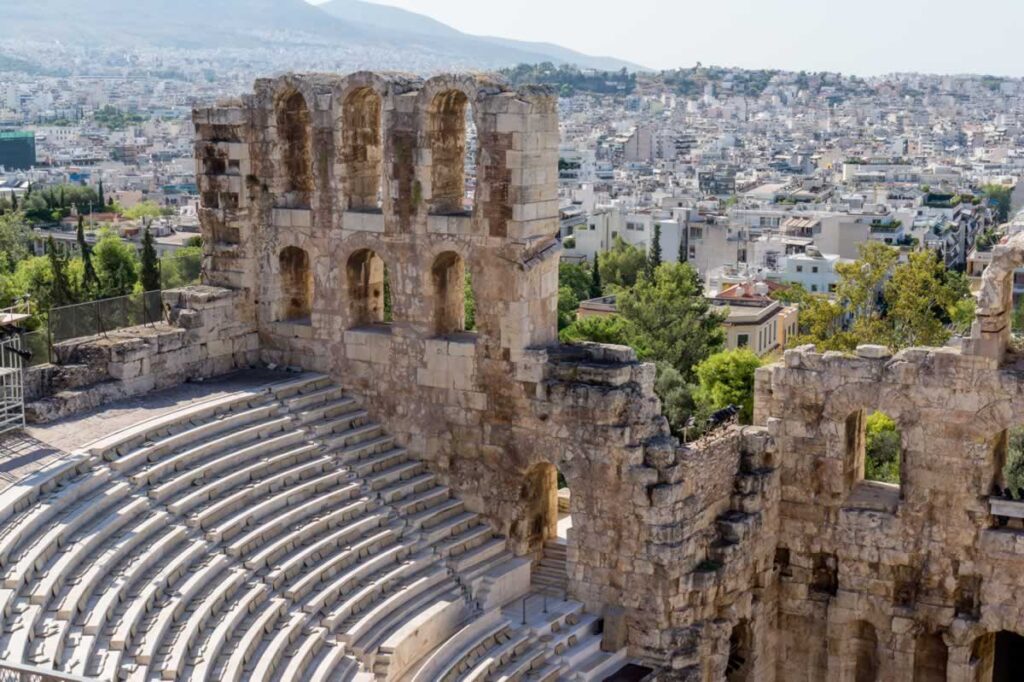
Athens is incredible in winter. The Acropolis covered in occasional snow creates an unforgettable sight, and you can explore the Parthenon, Ancient Agora, and National Archaeological Museum without fighting crowds or heat.
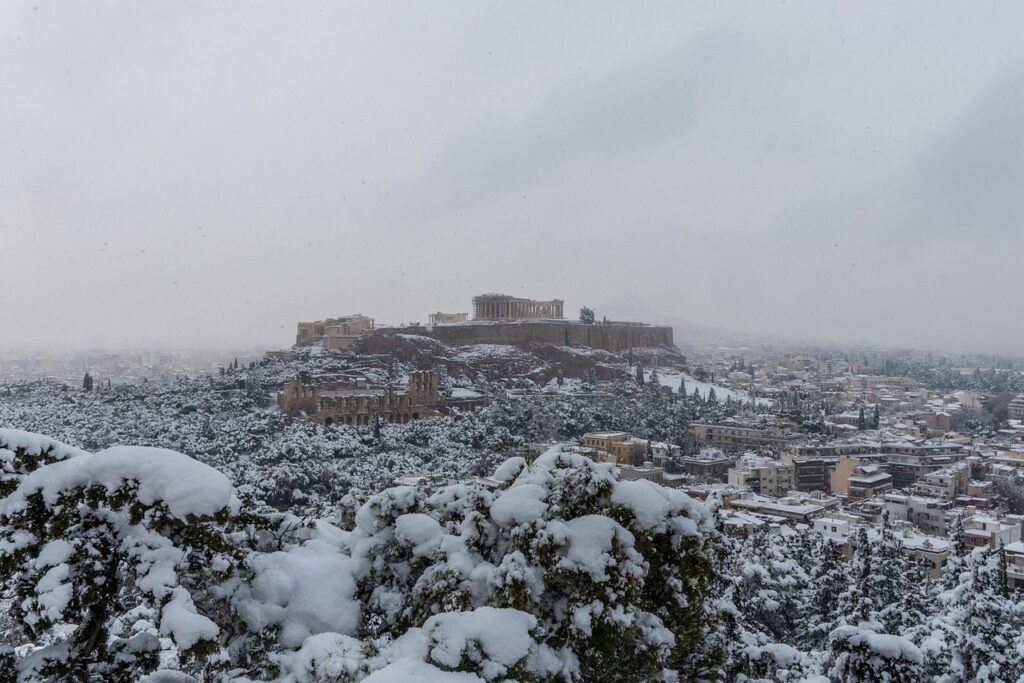
Image by ANTONIOS FRAGKOGIANNIS from Pixabay
The city’s café culture thrives during cooler months. Locals hang out over coffee and conversation in Plaka’s cobblestone streets. Winter also brings theater season, with performances at venues like the Odeon of Herodes Atticus.
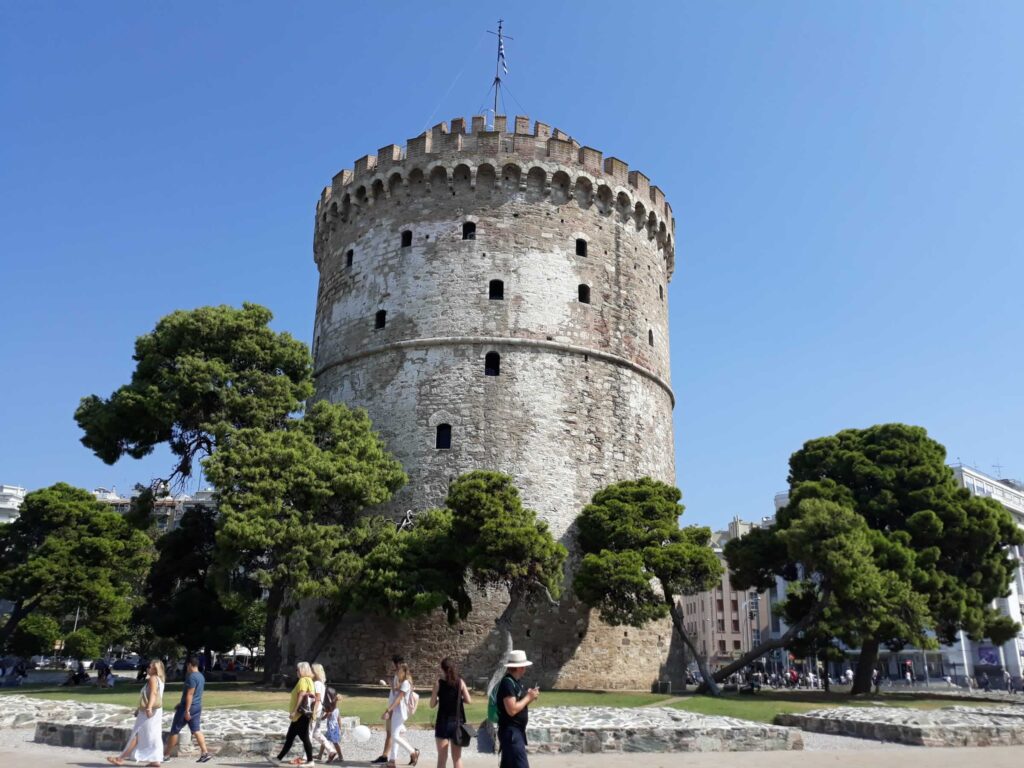
Thessaloniki comes alive in winter as Greece’s cultural capital. The city hosts tons of festivals, including celebrations around the feast day of Saint Dimitrios. Its Byzantine walls, Ottoman architecture, and world-class museums offer endless exploration, while its famous food scene warms visitors with hearty dishes like bougatsa pastries and filling stews.

Delphi, Olympia, and Meteora become almost mystical in winter. Fog rolling through Delphi’s ancient ruins or snow dusting the monasteries of Meteora creates moody conditions that summer simply can’t match. You’ll often have these UNESCO World Heritage sites nearly to yourself.
Enjoying Mild Weather in Southern Regions
While northern Greece experiences proper winter, the southern islands and coastal areas stay surprisingly pleasant, with temperatures often reaching 15-18°C (59-64°F) during the day.
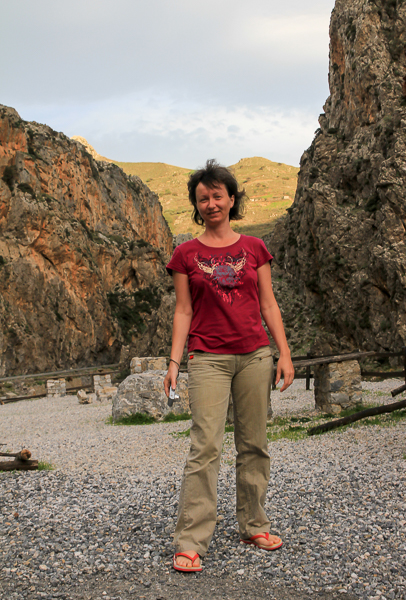
Crete stands out as the warmest winter destination. My photo above was taken on a December day, somewhere in Crete, in the mountains near Chania. Look at my winter outfit!
The island’s southern coast, particularly around Chania and Rethymno, enjoys mild, sunny days perfect for hiking through the Samaria Gorge (when open), exploring Venetian harbors, and discovering real village life. Locals harvest olives in winter, and many farms welcome visitors to help with this ancient tradition.
The Peloponnese offers mild coastal weather combined with mountain access. Towns like Nafplio and Monemvasia become peaceful retreats where you can enjoy waterfront walks, explore medieval fortresses, and enjoy traditional Greek food in restaurants filled with locals rather than tourists.
Rhodes and the Dodecanese islands maintain nice winter weather. While swimming might be cold, the weather suits hiking, cycling, and exploring Rhodes’ medieval Old Town. The island’s interior villages preserve centuries-old traditions that become more visible when tourism slows down.
Yachting and Maritime Activities
Winter yachting in Greece appeals to experienced sailors seeking solitude and dramatic seascapes. While this isn’t the main season for leisure sailing, opportunities exist for those willing to embrace cooler conditions.
December through February sees the fewest boats on the water, but good weather windows allow for coastal cruising, particularly around the Saronic Gulf and the eastern Peloponnese.
Marina rates drop significantly, and services become more personalized with fewer boats competing for attention.
The Ionian Sea offers the most protected winter sailing, with the mainland coast providing shelter from strong winds. Experienced sailors can find calm periods for short trips, and the harbors of Paxos, Lefkada, and Kefalonia welcome winter visitors with dramatically reduced fees.
Many charter companies offer winter storage and maintenance services, making this season ideal for yacht owners preparing their boats for spring. Some companies also provide winter charters with experienced skippers who know the seasonal weather patterns.
For those less interested in sailing during winter, coastal walks along harbors and marinas offer their own rewards. Watching fishing boats return with their daily catch, observing boat maintenance work, and chatting with year-round maritime communities provides real glimpses into Greece’s deep connection with the sea.
Thermal Springs and Wellness
Greece’s volcanic geography created numerous natural hot springs that become particularly appealing in winter months.
Loutraki, near Corinth, has drawn visitors to its healing waters since ancient times. Modern spa facilities complement natural springs, offering treatments ranging from hydrotherapy to mud baths. The town’s seaside location allows for pleasant winter walks between spa sessions.
Edipsos on Evia island ranks among Europe’s most significant thermal spa destinations. Its waters, rich in minerals, emerge at temperatures up to 78°C (172°F). Historic spa buildings from the Belle Époque era add architectural interest to the healing experience.
Lesser-known springs dot the Greek landscape—from the riverside baths at Smokovo to the coastal pools at Kythnos island. Many remain free and uncommercial, offering genuine experiences of how Greeks have used these natural resources for thousands of years.
Culinary Tourism
Winter reveals Greece’s true food culture. This is when traditional cooking matters most, when seasonal ingredients shape menus, and when food’s role in community becomes most obvious.
Mountain regions serve hearty dishes designed for cold weather: slow-cooked lamb with hilopites (hand-cut pasta), wild boar stews, and thick bean soups enriched with local olive oil. Metsovo in the Pindus Mountains showcases this tradition alongside its famous smoked cheeses and wines.
Coastal areas celebrate winter seafood—sea urchins, mussels, and winter fish varieties appear on menus. Traditional fish restaurants in places like Volos or Kavala serve these delicacies to appreciative local crowds.

Winter also brings Greece’s festival foods into focus. Vasilopita (New Year’s cake) carries coins for luck, while Carnival season before Lent features special pastries and feasting before the fasting period. Taking part in these traditions offers cultural experiences impossible during tourist season.
Practical Considerations
Winter travel in Greece requires different preparation than summer visits. Pack layers, as mornings can be cold while afternoons turn pleasant.
Rain happens more frequently, particularly in western regions and mountains, so waterproof gear is essential. I’ve even experienced snow one December morning in Agia Galini, in Crete, some years ago.
Many island hotels and restaurants close from November through March, particularly on smaller islands. However, this means those that stay open offer real experiences with locals rather than international crowds. Major destinations like Athens, Thessaloniki, and large islands maintain full services year-round.
Transportation continues reliably, though ferry schedules reduce significantly to smaller islands. Domestic flights operate throughout winter, often at reduced prices. Renting a car becomes more affordable and allows flexibility to chase good weather or explore remote areas.
Winter in Greece is a completely different experience that reveals aspects of this ancient land hidden during summer’s intensity. Whether you’re skiing down mountain slopes, exploring archaeological wonders in solitude, or simply enjoying slow days in sun-warmed coastal villages, Greece in winter offers rewards that surprise and delight those willing to experience this Mediterranean country in its quieter, more thoughtful season.

